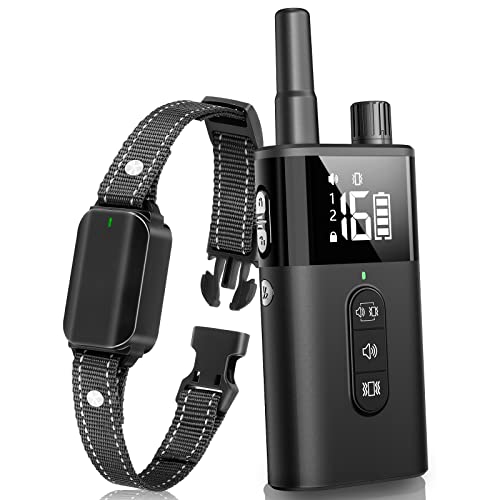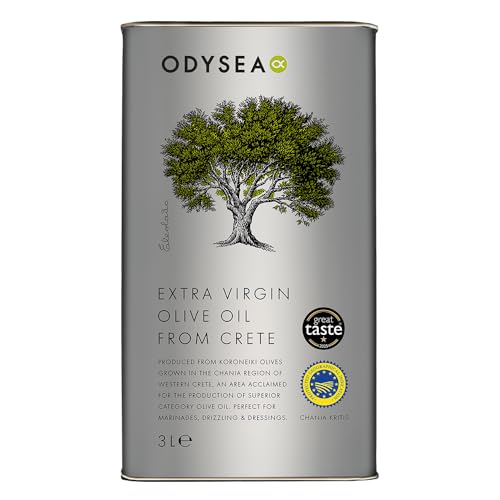
First off, if you notice your furry companion indulging in this peculiar habit, don’t panic. It’s more common than you might think. Many animals, particularly canines, exhibit this behaviour for various reasons, ranging from nutritional deficiencies to natural instinct. A well-balanced diet is key; ensure your pet receives all necessary nutrients to discourage this unappetising habit.
In my experience, I’ve seen friends’ pets partake in this activity, often out of boredom or anxiety. Keeping your animal mentally stimulated can help. Engaging them with toys, training sessions, or interactive games reduces the likelihood of such behaviours. Regular exercise is equally important; a tired dog is less likely to seek out strange snacks.
Another factor is the social nature of these creatures. They often mimic behaviours of peers, especially if they observe them enjoying something. To combat this, supervise interactions with other animals, and redirect any unwanted behaviours immediately. Positive reinforcement for good actions works wonders!
Lastly, if this behaviour persists, a visit to the vet is advisable. They can rule out any underlying health issues that might be driving this strange appetite. Addressing the root cause is crucial for your pet’s well-being.
Understanding Canine Coprophagia
It’s fascinating to observe peculiar behaviours in pets. A common scenario is when a furry friend finds delight in consuming the droppings of another. This practice can stem from several reasons:
- Instinctual Behaviour: Ancestral traits play a role. Wild canines often clean their dens by eating waste, ensuring a hygienic environment.
- Nutritional Deficiency: If a companion lacks essential nutrients, they might seek alternative sources. This could be a sign to reassess their diet.
- Attention-Seeking: Sometimes, this act is a cry for attention. If a pet notices a strong reaction from their human, they might repeat the behaviour.
- Curiosity: Young pups often explore the world through taste. Their natural curiosity can lead to this behaviour, especially in their formative months.
- Stress or Anxiety: Changes in environment or routine can trigger stress. In such cases, engaging in this habit may provide comfort.
If you’re facing this issue, consider the following strategies to minimise it:
- Ensure a balanced diet rich in nutrients.
- Increase exercise and mental stimulation to reduce boredom.
- Redirect attention with toys or training when you notice the behaviour.
- Clean up promptly to remove any temptation.
- Consult a veterinarian for professional advice if the behaviour persists.
By understanding the underlying causes, it becomes easier to address and manage this behaviour effectively. Each pet is unique, so patience and observation are key in finding the right approach.
Common reasons behind coprophagia in canines
One prevalent cause for this behaviour is nutritional deficiency. If a furry friend is lacking certain nutrients, they might turn to something that seems bizarre to us. Ensuring a balanced diet can help mitigate this issue. Regular check-ups with a vet can identify any deficiencies.
Another factor could be instinctual behaviour. In the wild, canines might consume faeces to keep their den clean or to avoid attracting predators. This instinct can carry over to domesticated companions, leading to similar habits.
Curiosity and exploration
Young pups, in their quest to explore the world, often investigate everything with their mouths. This natural curiosity can lead them to sample various items, including waste. Supervision during playtime can help redirect their attention to more appropriate things to chew on.
Attention-seeking behaviour
Sometimes, this act can be a way of seeking attention. If a furry friend notices that their human reacts strongly to this behaviour–whether positively or negatively–they might repeat it simply for the sake of interaction. Reinforcing positive behaviours and ignoring the undesirable ones can help in reducing this tendency.
Understanding these underlying reasons can lead to effective strategies for addressing this behaviour, ultimately creating a happier and healthier environment for both pet and owner.
Health implications of canines consuming faeces
Consuming excrement can lead to various health issues. Parasitic infections are among the most significant risks. Intestinal parasites, such as roundworms and hookworms, can be transmitted through ingestion of contaminated material. Regular deworming and stool checks can help mitigate this risk.
Gastrointestinal disturbances often arise as well. Symptoms may include vomiting, diarrhoea, or abdominal discomfort. If a canine exhibits these signs after such behaviour, a veterinary visit is advisable. Additionally, the presence of harmful bacteria, such as Salmonella or E. coli, poses a threat, potentially causing severe gastrointestinal infections.
Nutritional deficiencies
Occasionally, this behaviour stems from nutritional gaps. A lack of certain vitamins or minerals in the diet may drive a canine to seek out faeces for supplemental nutrients. Ensuring a balanced diet rich in essential nutrients can reduce the likelihood of this habit.
Behavioural concerns
Stress and anxiety can also lead to this action. Environmental changes, lack of exercise, or insufficient mental stimulation may cause a canine to engage in this behaviour as a coping mechanism. Providing adequate physical activity and interactive play can alleviate stress and redirect focus.
Consulting with a veterinarian or a canine behaviourist can provide tailored strategies to address this issue, ensuring a healthier lifestyle for your companion.
Behavioural triggers for coprophagic tendencies
Encouraging specific behaviours often stems from environmental factors. A significant trigger is the presence of stress or anxiety. When a canine feels overwhelmed, it might resort to consuming waste as a coping mechanism. This behaviour can develop if a pet has experienced a traumatic event or lacks adequate mental stimulation.
Another influencing factor is competition for resources. In multi-pet households, one animal may consume waste to assert dominance or prevent others from accessing what it perceives as valuable. This competitive instinct can lead to repeated actions if not addressed promptly.
Curiosity plays a role, especially in younger canines. They explore their surroundings with their mouths, and waste can appear as an intriguing item. Training and supervision are vital at this stage to redirect their curiosity towards more appropriate objects.
Dietary deficiencies can also prompt this behaviour. When a pet lacks certain nutrients, it may instinctively seek out faeces, which can contain undigested remnants of food. Consulting a veterinarian for a balanced diet can mitigate this issue.
Lastly, observing others can reinforce behaviours. If one animal in a household engages in this habit, others may imitate it, assuming it to be acceptable. Consistent reinforcement of positive behaviours and discouragement of negative actions is key to breaking the cycle.
How to discourage this behaviour in your pet
To reduce this undesirable habit, implement a consistent routine for bathroom breaks. Ensure your companion is taken outside regularly, especially after meals. This helps them learn where to relieve themselves and decreases the chances of scavenging.
Positive reinforcement plays a key role. Reward your furry friend with treats or praise immediately after they finish their business in the designated area. This creates a clear association between the correct behaviour and positive outcomes.
Keep the environment clean. Remove any waste promptly to eliminate temptation. If your yard is free from distractions, your companion will be less inclined to explore unpleasant options.
Consider using deterrent products or supplements that can make the stool less appealing. Some additives can change the taste or smell, discouraging the habit effectively. Always consult with a veterinarian before introducing new items into your pet’s diet.
Engage your companion in regular exercise and play. Boredom often leads to undesirable behaviours, so providing mental and physical stimulation can redirect their focus. Interactive toys or puzzle feeders can keep their mind occupied.
Training can also be beneficial. Teaching commands like “leave it” or “no” can help establish boundaries. Consistency in following through with commands is critical, so remain vigilant during training sessions.
| Technique | Description |
|---|---|
| Regular Bathroom Breaks | Establish a routine to minimise opportunities for scavenging. |
| Positive Reinforcement | Reward correct behaviours to encourage repetition. |
| Clean Environment | Remove waste promptly to limit temptations. |
| Deterrent Products | Use additives to make waste less appealing. |
| Regular Exercise | Provide mental and physical stimulation to reduce boredom. |
| Training Commands | Teach commands to establish clear boundaries. |
Monitor their behaviour closely. If the habit persists despite your efforts, seek advice from a veterinarian or a behaviourist. They can provide tailored strategies to address the issue effectively.
Consult a Veterinarian about Coprophagia
If your furry friend has developed a habit of consuming feces, seeking advice from a veterinarian is crucial. A professional evaluation is recommended if this behaviour persists beyond a few instances or occurs frequently. This may indicate underlying health issues or nutritional deficiencies.
Observe your companion for any signs of illness, such as gastrointestinal distress, lethargy, or changes in appetite. If you notice these symptoms alongside the coprophagia, a prompt visit to the vet is necessary. They can perform tests to rule out conditions like parasites or malabsorption syndromes.
Additionally, if this behaviour emerges suddenly in a previously well-behaved pet, it may warrant further investigation. Stress factors, changes in environment, or new pets can trigger such actions, and a vet can help determine the best course of action.
Consultation is also advisable if your companion’s stool consumption leads to other pets in the household mimicking this behaviour. Addressing the issue early can prevent it from becoming a habit for multiple animals.
In some cases, dietary adjustments might be recommended. If your canine is lacking essential nutrients, a high-quality diet can help. For example, checking out the best dog food company in india might provide options that suit your pet’s needs better.
Remember, a veterinarian’s insight is invaluable for both health and behavioural concerns, ensuring that your beloved pet remains happy and healthy.






